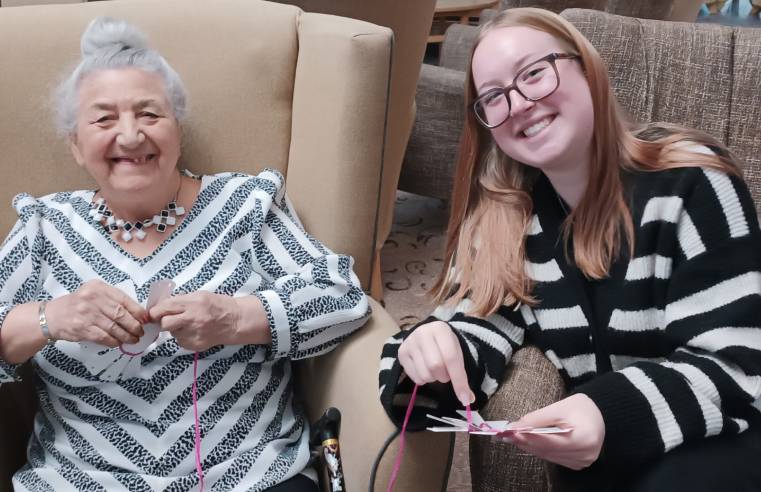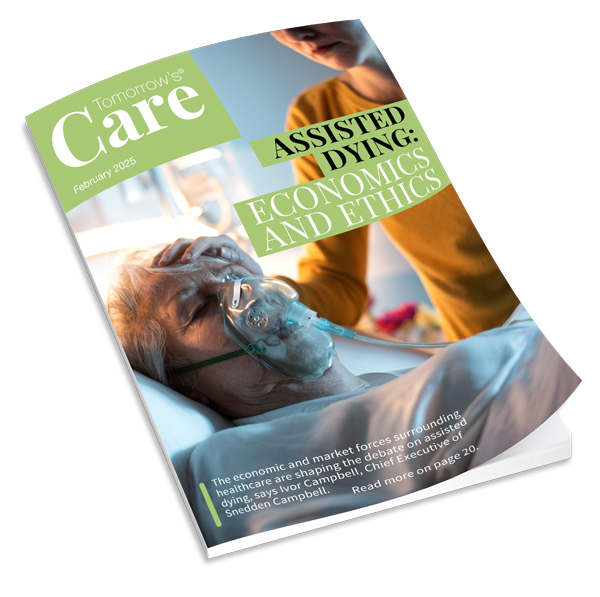You are here
- Home
- >
- Sustainability
- >
- More support needed to help people self manage diabetes, says CQ
More support needed to help people self manage diabetes, says CQC

Published on 06/07/2016
A report published today has said that diabetes sufferers are not receiving enough support to successfully self-manage their condition.
The Care Quality Commission study, which explores diabetes care provision across England, found that care is not always flexible and responsive enough to meet patient’s needs.
‘My Diabetes, My Care’ talked to people with Type 1 and Type 2 diabetes, aged between 18 and 65, about their experiences as well as with commissioners, providers and staff across the country about how community diabetes care is delivered.
The review found that people at high risk of developing Type 2 diabetes were not always identified and supported to become healthier.
The study also found emotional support for sufferers, at diagnosis and beyond, was lacking, meaning effective self-management techniques weren’t always learned effectively, and engagement with services and attendance at structured education programmes was limited.
CQC’s Chief Executive, David Behan, said: “With nearly 3.5 million people living with diabetes in England, and predictions that this figure could rise to 4.6 million by 2030, there has never been a more important time for all parts of the health and social care system to address this condition.
“Getting our response right on diabetes is crucial to delivering the vision set out in the Five Year Forward View, which prioritises prevention and public health and transcends traditional boundaries between primary care, community services and hospitals.
“Together, let’s make self-management a real priority for the benefit of people living with diabetes and the future sustainability of the NHS.”
The review also highlighted that although the structured education courses did improve individual’s ability and confidence to manage their diabetes, they didn’t meet everyone’s needs, and often people from black and minority ethnic (BME) groups were less likely to be aware of these schemes.
The report found these courses were rarely offered to people with a learning disability.
Some local services illustrated they were providing culturally relevant information, support and training to people in their local community.
City and Hackney CCG were praised in the report for their community awareness sessions and delivery of accredited structured education programmes.
The report praised a good picture of care overall, with many examples that others can learn from, including local commissioners and providers proactively engaging with individuals and communities, and innovative methods to increase people’s ability to self-manage.
Andy Broomhead, aged 35 from Sheffield, said: “In 2002, when I was just out of university, I was diagnosed with Type 1 diabetes. I was bombarded with information from the outset. It was overwhelming, and I also had to get used to the idea of having to inject myself – something that caused me a lot of apprehension. I went home with too many pamphlets. It would have been much better to have someone there to walk you through the first few weeks after diagnosis.
“I didn’t feel comfortable to self-manage until a few years later. Almost 10 years after diagnosis, I took a course and it did a lot to help me feel confident in managing my care. The course was hugely beneficial, and I can honestly say that it changed my life.”
Chris Askew, Chief Executive of Diabetes UK, said: “As the diabetes crisis continues to escalate we welcome the CQC’s review, which highlights just how crucial it is for people with diabetes to get good support to help them better self-manage this very serious condition.
“We want to see Clinical Commissioning Groups do far more to enable commissioners and healthcare professionals to promote the importance of education for people with the condition and for them to develop more flexible education programmes to help put people with diabetes firmly at the centre of their care.
“The review also highlights lack of support for people to become healthier. A new dimension in NHS diabetes care is the Diabetes Prevention Programme to help people avoid developing Type 2 diabetes. Diabetes UK is working with NHS England and Public Health England to roll out this programme to ever more people across the country.”
The Care Quality Commission study, which explores diabetes care provision across England, found that care is not always flexible and responsive enough to meet patient’s needs.
‘My Diabetes, My Care’ talked to people with Type 1 and Type 2 diabetes, aged between 18 and 65, about their experiences as well as with commissioners, providers and staff across the country about how community diabetes care is delivered.
The review found that people at high risk of developing Type 2 diabetes were not always identified and supported to become healthier.
The study also found emotional support for sufferers, at diagnosis and beyond, was lacking, meaning effective self-management techniques weren’t always learned effectively, and engagement with services and attendance at structured education programmes was limited.
CQC’s Chief Executive, David Behan, said: “With nearly 3.5 million people living with diabetes in England, and predictions that this figure could rise to 4.6 million by 2030, there has never been a more important time for all parts of the health and social care system to address this condition.
“Getting our response right on diabetes is crucial to delivering the vision set out in the Five Year Forward View, which prioritises prevention and public health and transcends traditional boundaries between primary care, community services and hospitals.
“Together, let’s make self-management a real priority for the benefit of people living with diabetes and the future sustainability of the NHS.”
The review also highlighted that although the structured education courses did improve individual’s ability and confidence to manage their diabetes, they didn’t meet everyone’s needs, and often people from black and minority ethnic (BME) groups were less likely to be aware of these schemes.
The report found these courses were rarely offered to people with a learning disability.
Some local services illustrated they were providing culturally relevant information, support and training to people in their local community.
City and Hackney CCG were praised in the report for their community awareness sessions and delivery of accredited structured education programmes.
The report praised a good picture of care overall, with many examples that others can learn from, including local commissioners and providers proactively engaging with individuals and communities, and innovative methods to increase people’s ability to self-manage.
Andy Broomhead, aged 35 from Sheffield, said: “In 2002, when I was just out of university, I was diagnosed with Type 1 diabetes. I was bombarded with information from the outset. It was overwhelming, and I also had to get used to the idea of having to inject myself – something that caused me a lot of apprehension. I went home with too many pamphlets. It would have been much better to have someone there to walk you through the first few weeks after diagnosis.
“I didn’t feel comfortable to self-manage until a few years later. Almost 10 years after diagnosis, I took a course and it did a lot to help me feel confident in managing my care. The course was hugely beneficial, and I can honestly say that it changed my life.”
Chris Askew, Chief Executive of Diabetes UK, said: “As the diabetes crisis continues to escalate we welcome the CQC’s review, which highlights just how crucial it is for people with diabetes to get good support to help them better self-manage this very serious condition.
“We want to see Clinical Commissioning Groups do far more to enable commissioners and healthcare professionals to promote the importance of education for people with the condition and for them to develop more flexible education programmes to help put people with diabetes firmly at the centre of their care.
“The review also highlights lack of support for people to become healthier. A new dimension in NHS diabetes care is the Diabetes Prevention Programme to help people avoid developing Type 2 diabetes. Diabetes UK is working with NHS England and Public Health England to roll out this programme to ever more people across the country.”
Related News
Categories
- CQC ratings
- Care home news
- Care jobs
- Care planning
- Care sector awards
- Care sector events
- Care sector news
- Care staff
- Charity
- Cleaning & Hygiene
- Construction
- Dementia
- Disability
- Entertainment
- Finance
- Fitness
- Food & Drink
- Fundraising
- Furniture
- Health & Safety
- Healthcare
- Hospice & Palliative Care
- Hospitals
- Industry Comment
- Interiors
- Laundry
- Legal
- Leisure
- Medication
- Mental Health
- Mobility
- New appointments
- PPE
- Products
- Property
- Recruitment
- Relationships
- Research
- Safeguarding
- Security
- Services
- Social care
- Sustainability
- Technology
- Training
- Transport
- Uniforms
- Waste
- Wearables























